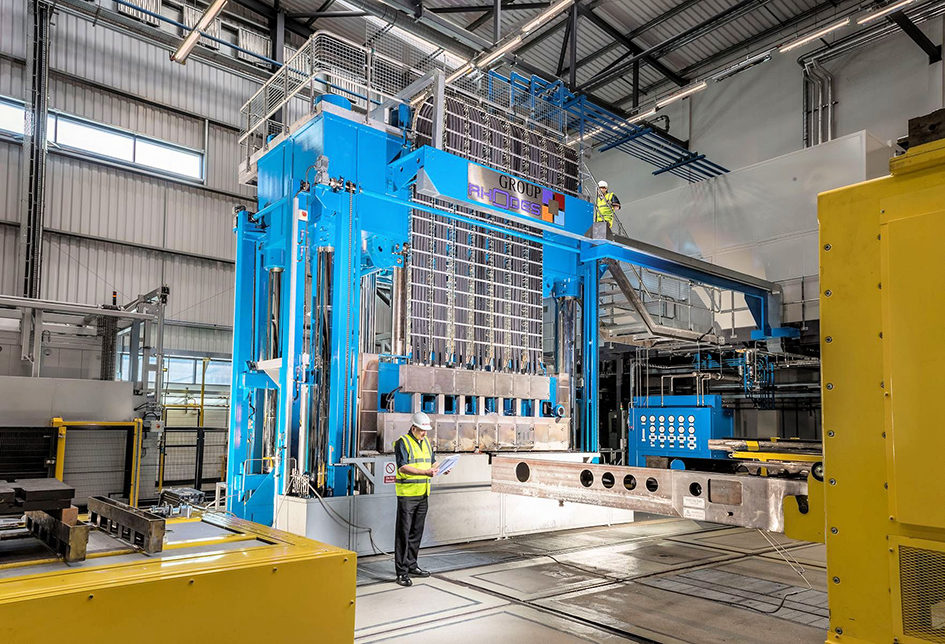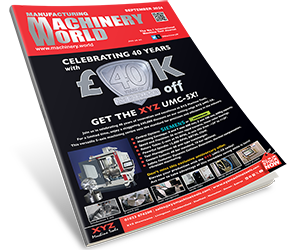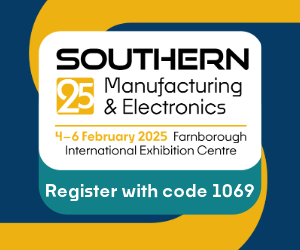Group Rhodes, through its Rhodes Interform business, has developed a revolutionary new process that enables large monocoque components, particularly those produced by super plastic forming (SPF) from very thin material, to more accurately retain their shape on cooling.
This innovation, for which Rhodes Interform has a patent pending, opens up opportunities for use in the aerospace and automotive industries.
Peter Anderton, Technical Director for Rhodes Interform, explains: “This is a major process improvement which offers a unique and highly effective solution to the problems associated with the formation of complex, thin membrane components. There are huge opportunities for this technology to be used in industry to ensure large format components can be formed and retain their shape, no matter how thin the material or how volatile the prevailing atmospheric conditions.”
The manufacturing process for monocoque components involves diffusion bonding multiple layers of titanium sheet at selected points, and then superplastically forming them using argon gas to inflate the sheets into the shape of a hollow die. This process is extremely temperature and pressure sensitive. At the point the ambient temperature argon forming gas is admitted into the heated component, the gas expands, increasing its volume and hence its pressure if not adequately controlled.

One of the most critical phases during the press cycle is when the component has been formed by gas inflation and then needs to be cooled, prior to extraction from the press. At this stage, very low pressure argon gas is passed through the component (purging) to ensure no oxidization of the internal faces takes place whilst it is at elevated temperatures.
If the purge gas pressure is too high, the component will over inflate and lose its shape as soon as the dies are opened. If the purge gas pressure is too low, the ambient air pressure will implode the component. Achieving the correct balance is further complicated by the cooling component reducing the gas temperature/volume and therefore the internal gas pressure, although with experience compensatory gas pressures can be fine-tuned to compensate for such internal variables.
Certain external factors have however traditionally been more difficult to control. One significant external variable is ambient atmospheric air pressure, which can significantly affect the final shape of the component and take it out of tolerance. In the case of larger components with relatively thin membrane sheets, this can become a major problem.
Rhodes Interform’s innovative solution uses a gas manometer principle in the form of a vertical, open to atmosphere vent pipe, for controlling the gas pressure. This ensures a constant low-pressure gas supply, which self-compensates to changing ambient air pressures and keeps the material in a constant shape once formed in the mould.
This novel method of gas pressure control allows for the more accurate production of complex shapes and greater control when diffusion bonding multiple layers of titanium sheet.
Group Rhodes is a global manufacturer and service provider of hot and cold forming equipment for metals and composites. The company is a specialist in Superplastic Forming & Diffusion Bonding for both the aerospace and automotive sectors and also offers a full range of composite forming machinery.
For further details visit the website www.grouprhodes.co.uk.






